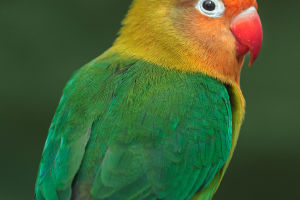World Elephant Day (WED) is celebrated annually on August 12th to draw attention to the plight of African and Asian elephants.
Despite their reputation for being cute, friendly, and intelligent animals, elephants face numerous threats to their survival, and their populations continue to decline. It is essential to address the issues facing both wild and captive elephants to ensure their survival and well-being in the future.
Elephants are social animals that live in family-based herds. One family, the Broken Trunk Family, which lives in China's Xishuangbanna region, has captured the world's attention.
The family is named after the baby elephants who suffered trunk injuries, resulting in shorter trunks. Despite their injuries, the short-nosed family enjoys wandering around, and they began their northward migration in March 2020.
Asian elephants are active foragers, and they start looking for food at four or five o'clock in the afternoon.
They migrate throughout the night, traveling more than ten kilometers. Despite their massive size, elephants have a weak digestive system, and only about 40% of the food they eat is digested.
This means that they need to forage far and wide to collect enough food to sustain themselves.
Plant seeds can hitch a ride on the elephant train as elephants roam the countryside, helping to spread plant offspring further afield. Zoos can make foraging more challenging for elephants by scattering feedings and using puzzle feeders.
Baby elephants sleep lying down, while adults sleep standing up. When conditions permit, elephants choose to lie down and sleep on soft sand. Zoos can provide piles of sand for elephants to make it easier for them to lie on their sides and get up.
Elephants also enjoy bathing in mud puddles, which help remove parasites from their skin and repel flies on their backs. Zoos can build pools and mud ponds to allow elephants to release their instincts.
The migratory path of wild elephant herds is fraught with potential danger for humans, as elephants in the wild do not have much experience with people.
Dealing with a herd of captive elephants requires professional handling. Training on "elephant husbandry and welfare" can help improve the situation of captive elephant herds.
Lawrence Anthony, the author of The Elephant Whisperer and founder of The Earth Organization, bought a nature reserve called "Surasula" in the Zululand region of South Africa to create a natural home for local wildlife.
When nine wild elephants moved out of the area, Anthony's fate became closely linked to the elephants. He fought with poachers and the government to move the elephants successfully, excluding two elephants killed by poachers. In the process of living together, Lawrence and the elephants established a deep affection, becoming each other's dependence.
World Elephant Day serves as a reminder of the ongoing struggle for elephant conservation and welfare.
The situation of both wild and captive elephants requires attention and action. Through efforts such as online training and the establishment of nature reserves, we can work towards preserving the beauty and majesty of these incredible creatures.
Let us hope that future generations will still be able to hear the wild call of elephants in the years to come.


